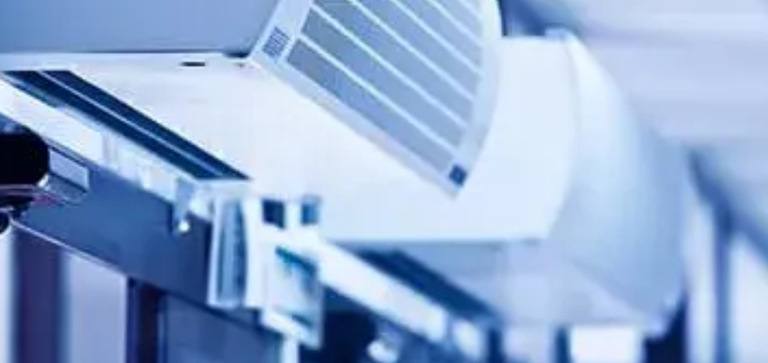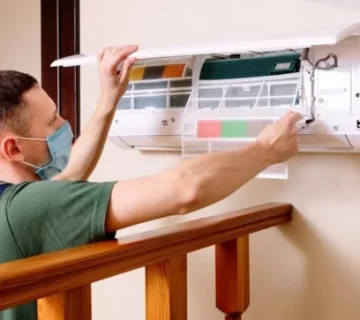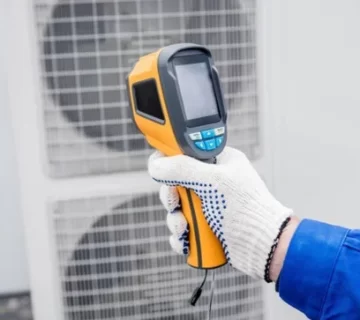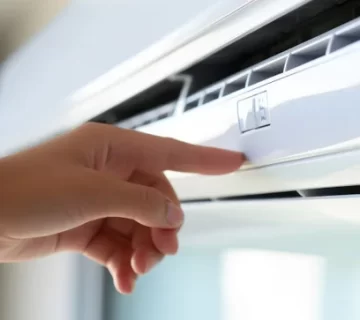The provision of treatment and care for citizens is a crucial function of hospitals, clinics, and other healthcare institutions in society. The function of heating, ventilation, and air conditioning (HVAC) in these structures is equally important. The significance of indoor air quality (IAQ) and its impact on health have already been covered. IAQ problems can exacerbate allergies and other respiratory problems, resulting in flare-ups and sensitivities. This is true for any sort of public facility, but it is particularly important for Air Conditioning in Healthcare institutions since they may receive patients with compromised health, where staff members need to be safeguarded from infections, and where sensitive procedures could be carried out.
The issues specific to healthcare facility buildings will be covered in this article, along with how each component (temperature, humidity, ventilation, and air filtration) contributes to maintaining a healthy atmosphere.
The Utilization of Air Conditioning in Healthcare Facilities
Infection Prevention
One of the most pressing problems in healthcare institutions is the transmission of diseases. High-efficiency particulate air (HEPA) filters installed in air conditioning systems may dramatically lower the quantity of airborne particles such as germs, viruses, and fungus. These systems reduce the danger of airborne transmission by properly filtering the air, which is especially important in locations with patients who are susceptible to infections, such as critical care units and isolation rooms.
In addition to HEPA filters, new air conditioning systems may integrate ultraviolet germicidal irradiation (UVGI) technology, which destroys hazardous bacteria and improves overall air quality in hospital settings. By maintaining a clean and sterile environment, the risk of healthcare-associated illnesses is dramatically reduced, protecting both patients and healthcare personnel.
Temperature and humidity regulation
Controlling the temperature and humidity in healthcare facilities is critical for the comfort and well-being of patients. Air conditioning systems keep interior temperatures consistent, which improves recovery and reduces patient pain. Maintaining milder temperatures in operating rooms, for example, is critical to preventing difficulties during surgeries, since excessive heat can impede wound healing and patient recovery.
Furthermore, managing humidity is critical to preventing mould and bacteria growth. High humidity levels can promote microbial development, posing a risk to people with respiratory problems and impaired immune systems. Proper air conditioning aids in keeping humidity levels below acceptable limits, resulting in a healthy and sanitary atmosphere.
Preserving Medication and Equipment
Many drugs and medical equipment are temperature sensitive. Improper storage conditions might cause drugs’ effectiveness to deteriorate or render them useless. Maintaining temperature-controlled storage rooms in healthcare institutions is critical for protecting the integrity of drugs and medical supplies.
Air conditioning systems are critical to keeping pharmaceuticals and equipment at the proper temperature, preserving their effectiveness and safety. This is especially important for institutions that handle specialised therapies such as vaccinations, blood products, and organ transplants, where adequate storage conditions are necessary for patient care.
Improved Patient Outcomes
Patient well-being and comfort have a direct influence on their recovery and overall healthcare experience. Air conditioning offers a comfortable and calming environment, which aids in the reduction of tension and anxiety that are frequently connected with medical settings. Reduced recovery durations, decreased pain perception, and higher patient satisfaction can all result from increased comfort.
Properly filtered and conditioned air can greatly enhance respiratory function and general health in people with respiratory diseases such as asthma or chronic obstructive pulmonary disease (COPD). Air conditioning also aids in the maintenance of steady oxygen levels, which is critical for individuals suffering from respiratory distress.
Healthcare Personnel Assistance
Healthcare personnel’ well-being is equally vital to ensuring great patient care. The hard nature of their work, which includes long hours and exposure to a variety of challenges, can result in burnout and diminished job satisfaction. Air conditioning in healthcare institutions helps to provide a comfortable and conducive working atmosphere, which boosts worker morale and productivity.
Maintaining a suitable temperature and air quality is critical in locations such as operating rooms, emergency departments, and labs, where precise and focused work is required. It can aid in the prevention of weariness, the reduction of medical mistakes, and the general efficiency of healthcare personnel.
Medical Procedures that are Temperature Sensitive
Specific temperature conditions are required for some medical operations and treatments to be successful and safe. In vitro fertilisation (IVF) methods, for example, need rigorous temperature control to ensure embryo survival. Similarly, precise temperature settings are required for several diagnostic procedures and medical imaging equipment to obtain reliable findings.
Air conditioning systems guarantee that these temperature-sensitive treatments are carried out in the best possible circumstances, increasing their success rates and precision. Furthermore, air conditioning prevents equipment from overheating, protecting both the equipment and the patients receiving treatments.
It is impossible to overestimate the importance of air conditioning in healthcare institutions. AC system operation and maintenance, as well as the availability of quality Ac spare parts, Air conditioner tools, and Ac air filter, are critical to providing a healthy and pleasant environment for patients and healthcare personnel. Effective air conditioning not only improves patient outcomes by lowering infection risk and maintaining ideal temperature and humidity levels, but it also improves overall operational efficiency and staff productivity. Investing in the maintenance and updating of Air conditioning tools is still an important part of providing high-quality healthcare services.




